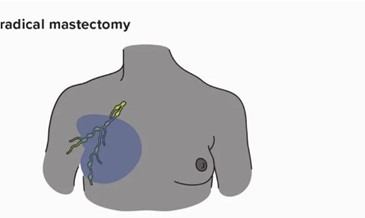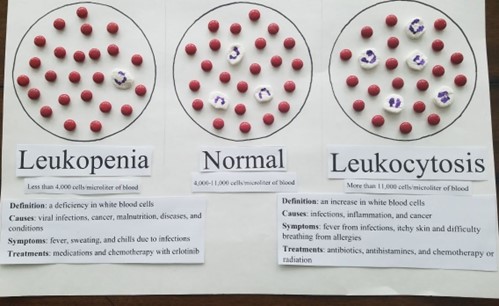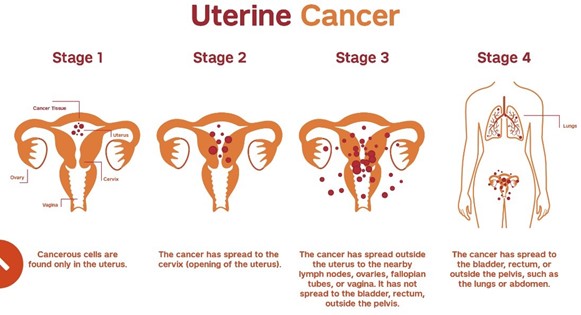The nurse is caring for a client who has just had a radical mastectomy and axillary node dissection. When
providing teaching to the client, which is the most appropriate?
Avoid exercise of the arm for the next 2 months.
Avoid exercise of the arm for the next 2 months.
Avoid lifting objects heavier than 10 pounds.
Use a sling until healing is complete
The Correct Answer is C
After a radical mastectomy and axillary node dissection, the client may experience swelling and discomfort in the affected arm, known as lymphedema. Lifting heavy objects with the affected arm can worsen the swelling and increase the risk of developing lymphedema. Therefore, it is important for the client to avoid lifting heavy objects with the affected arm and to limit activity that could cause strain or injury to the arm. However, gentle exercise and movement of the arm can help improve circulation and reduce the risk of lymphedema. Using a sling is not typically necessary after this type of surgery, and keeping cuticles clipped neatly is not directly related to post-operative care for a mastectomy and axillary node dissection.

Nursing Test Bank
Naxlex Comprehensive Predictor Exams
Related Questions
Correct Answer is A
Explanation
A. Leukopenia: Chemotherapy with paclitaxel and carboplatin can cause myelosuppression, leading to a significant decrease in white blood cells (leukopenia). This makes the client more susceptible to infections and is a common and serious adverse effect that the nurse should monitor closely.
B. Metabolic acidosis: This condition is less commonly associated with chemotherapy agents like paclitaxel and carboplatin. It usually results from conditions like renal failure, diabetic ketoacidosis, or severe diarrhea rather than chemotherapy.
C. Hyperphosphatemia: This electrolyte imbalance is not a typical adverse effect of paclitaxel and carboplatin. It is more commonly associated with conditions like chronic kidney disease or excessive phosphate intake.
D. Respiratory alkalosis: This condition is typically caused by hyperventilation and is not a known direct adverse effect of paclitaxel and carboplatin chemotherapy. The nurse should monitor for more common side effects related to chemotherapy, such as leukopenia.

Correct Answer is D
Explanation

Whether you are a student looking to ace your exams or a practicing nurse seeking to enhance your expertise , our nursing education contents will empower you with the confidence and competence to make a difference in the lives of patients and become a respected leader in the healthcare field.
Visit Naxlex, invest in your future and unlock endless possibilities with our unparalleled nursing education contents today
Report Wrong Answer on the Current Question
Do you disagree with the answer? If yes, what is your expected answer? Explain.
Kindly be descriptive with the issue you are facing.
